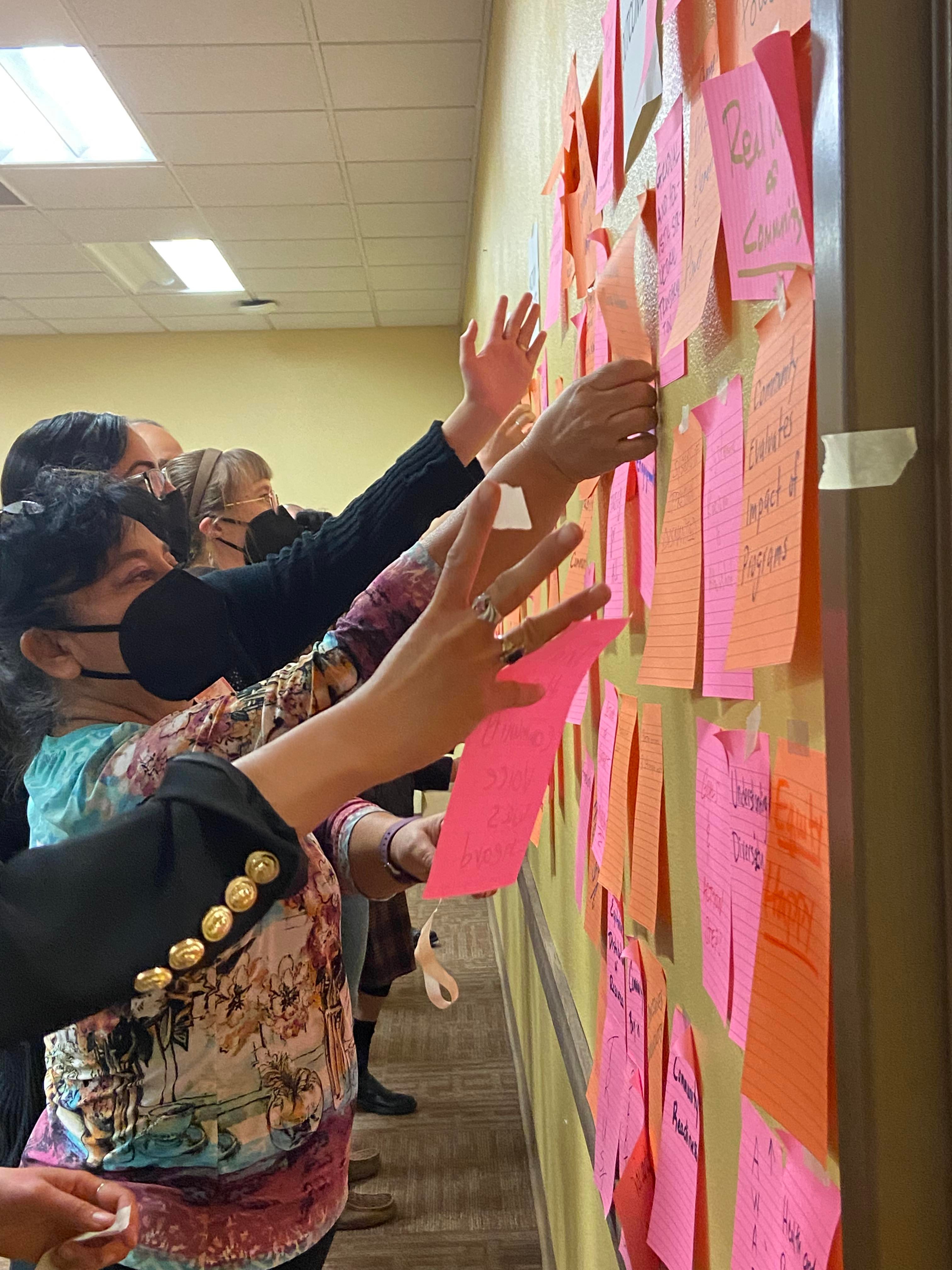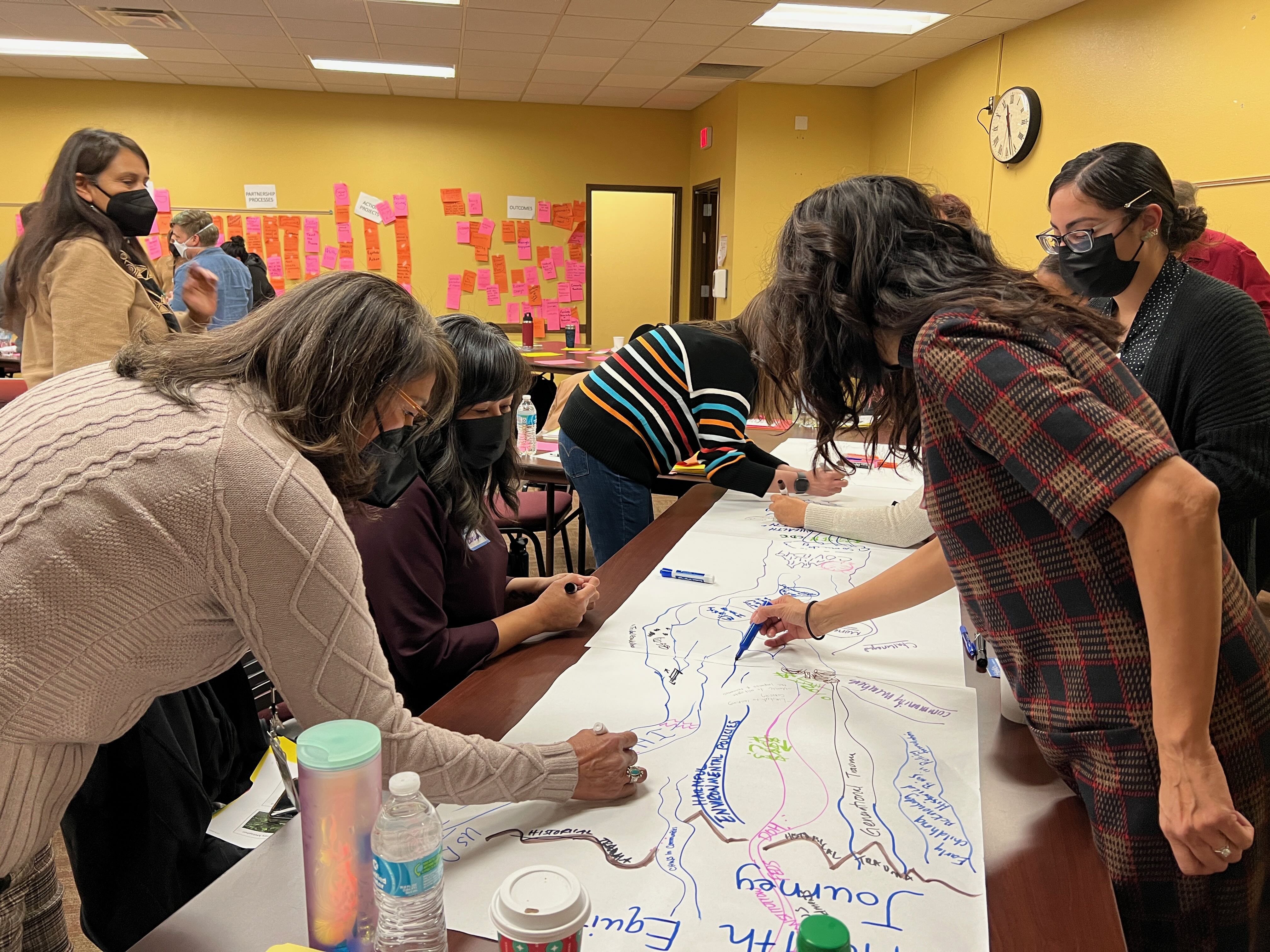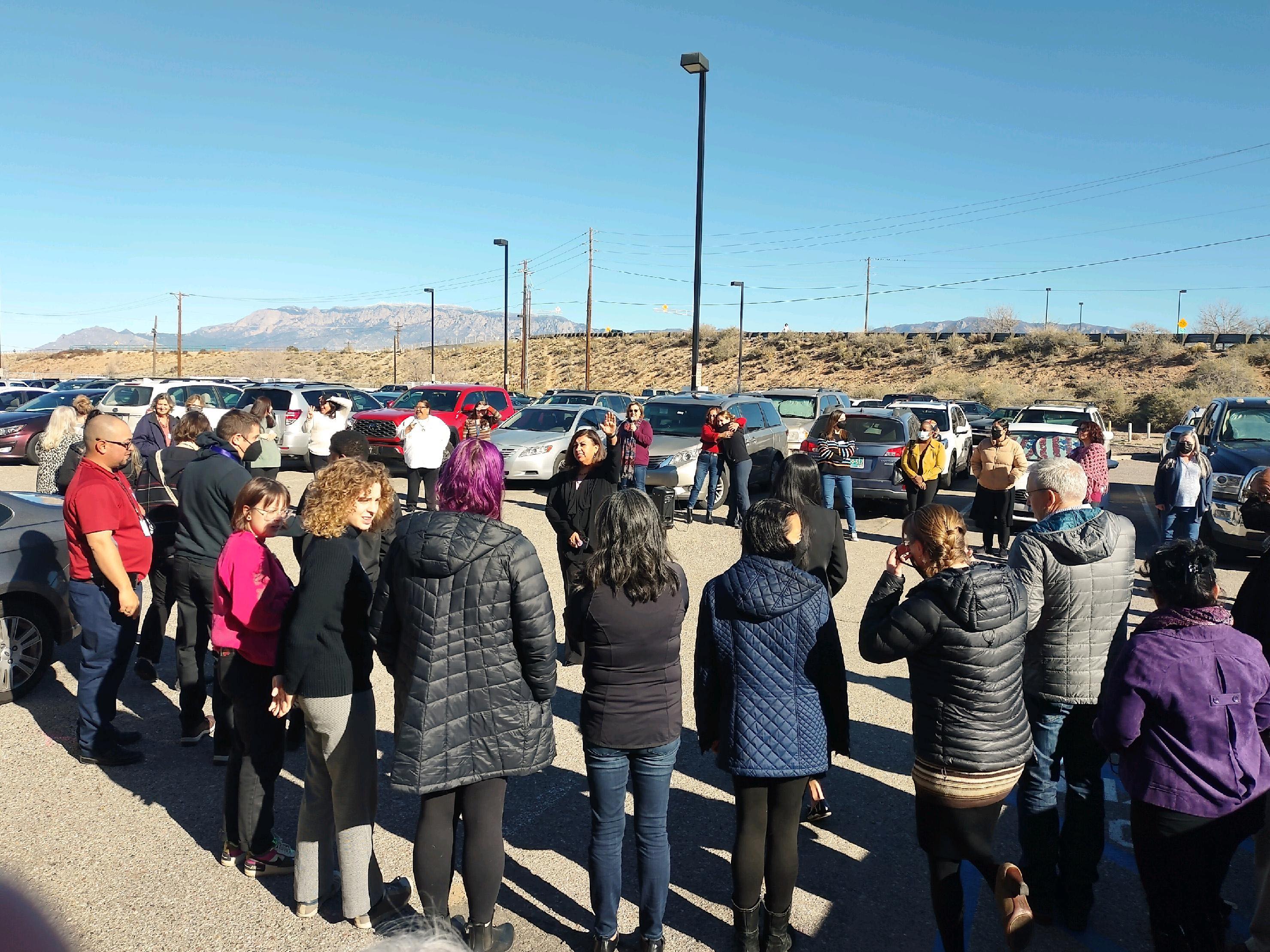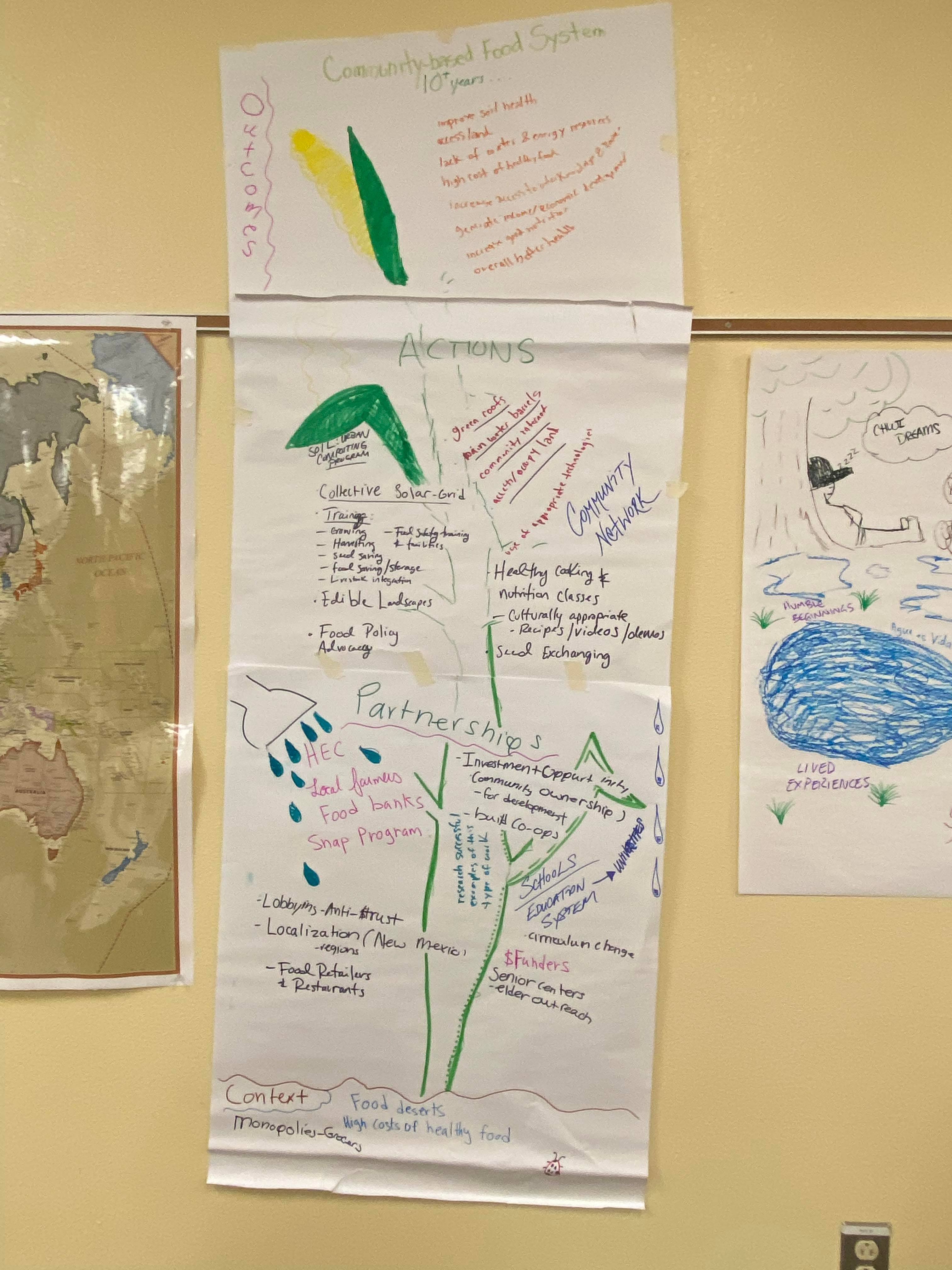The newest educational initiative is the Community-Based Participatory Action and Research (CBPAR) Training, which is a seven-module hybrid curriculum designed to disseminate knowledge on how to best engage communities as partners in research, programs, and actions. Developed by the UNM Academic Health Department team from CPR and College of Population Health with a state-wide design team, participants work in project groups concentrating on social or health issues of interest. The first three training modules are in-person to make space for meaningful dialogues and an opportunity for participants to network with other public health practitioners in the state. The next two modules are virtual using Google Jam board and breakout sessions for continued collaboration in project groups. The last module is in-person to strengthen relationships and public health projects statewide.
From Dec 2022 – April 2023, the CBPAR modules were piloted by a team from UNM CPR and College of Population Health, and other colleagues from Department of Health, health councils and health promotion teams, and community members. Seventy participants worked with tools, exercises, and guiding questions on the context of their projects, the barriers, and facilitators that influence partnership actions, and then visioning new strategies and outcomes for sustaining projects and partnerships over time. New Mexico’s histories and public health issues were discussed, for example environmental justice through the conservation of Chaco Culture National Park and rediscovering the Latinx History in New Mexico. Conversations focused on recognition of our histories and healing, paving the way on how to move forward to achieve goals of health equity and eradication of health disparities. Module evaluations, in the form of surveys and group dialogue, resulted in valuable suggestions for activity and content changes.
Planned to start in Fall 2023 is a second iteration, hosted in the southwest/border region, as a collaboration with NMSU and the southwest region health council and health promotion teams. Content specific to Latinx/Chicano populations will be added throughout the modules, as well as providing module presentations and activities in Spanish for promotores and other interested participants.



